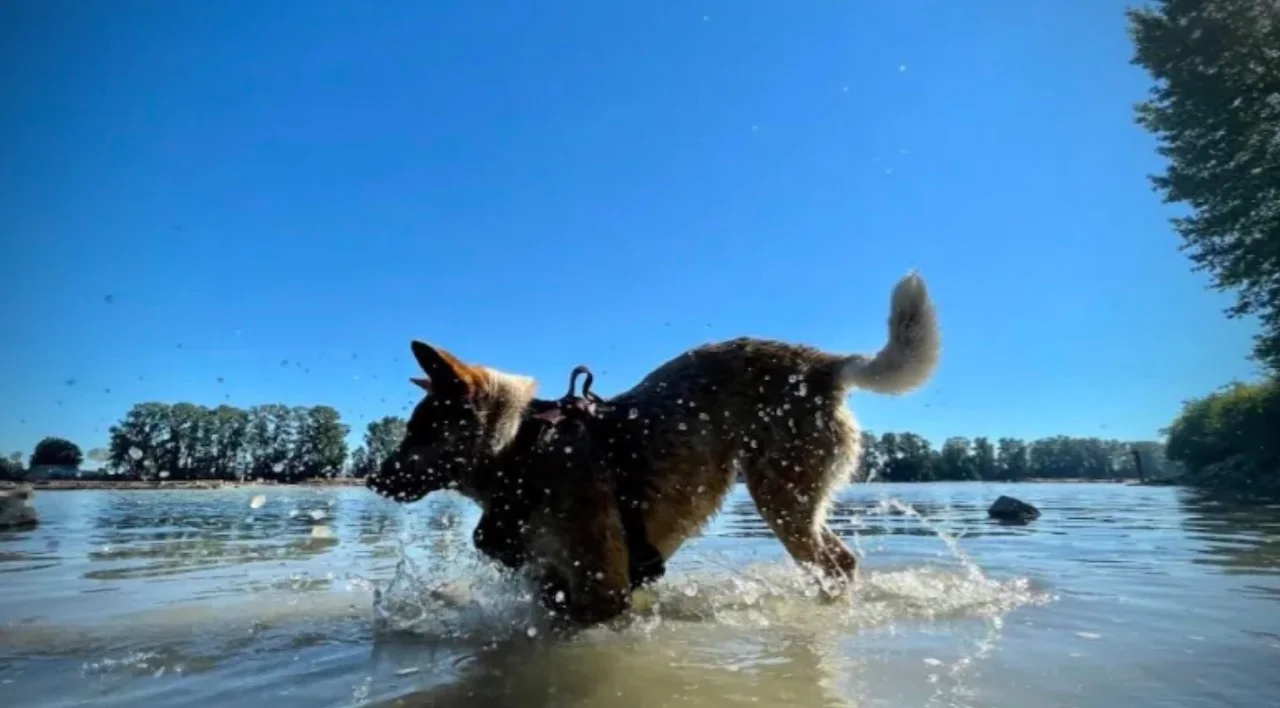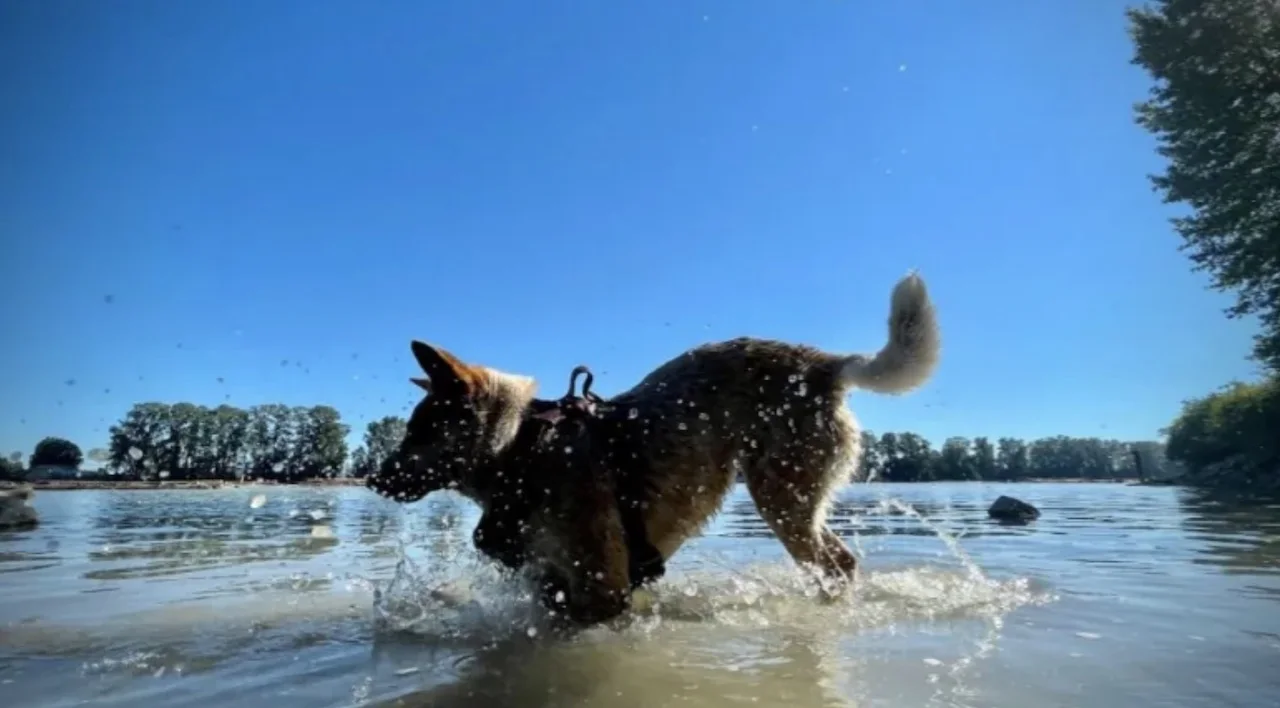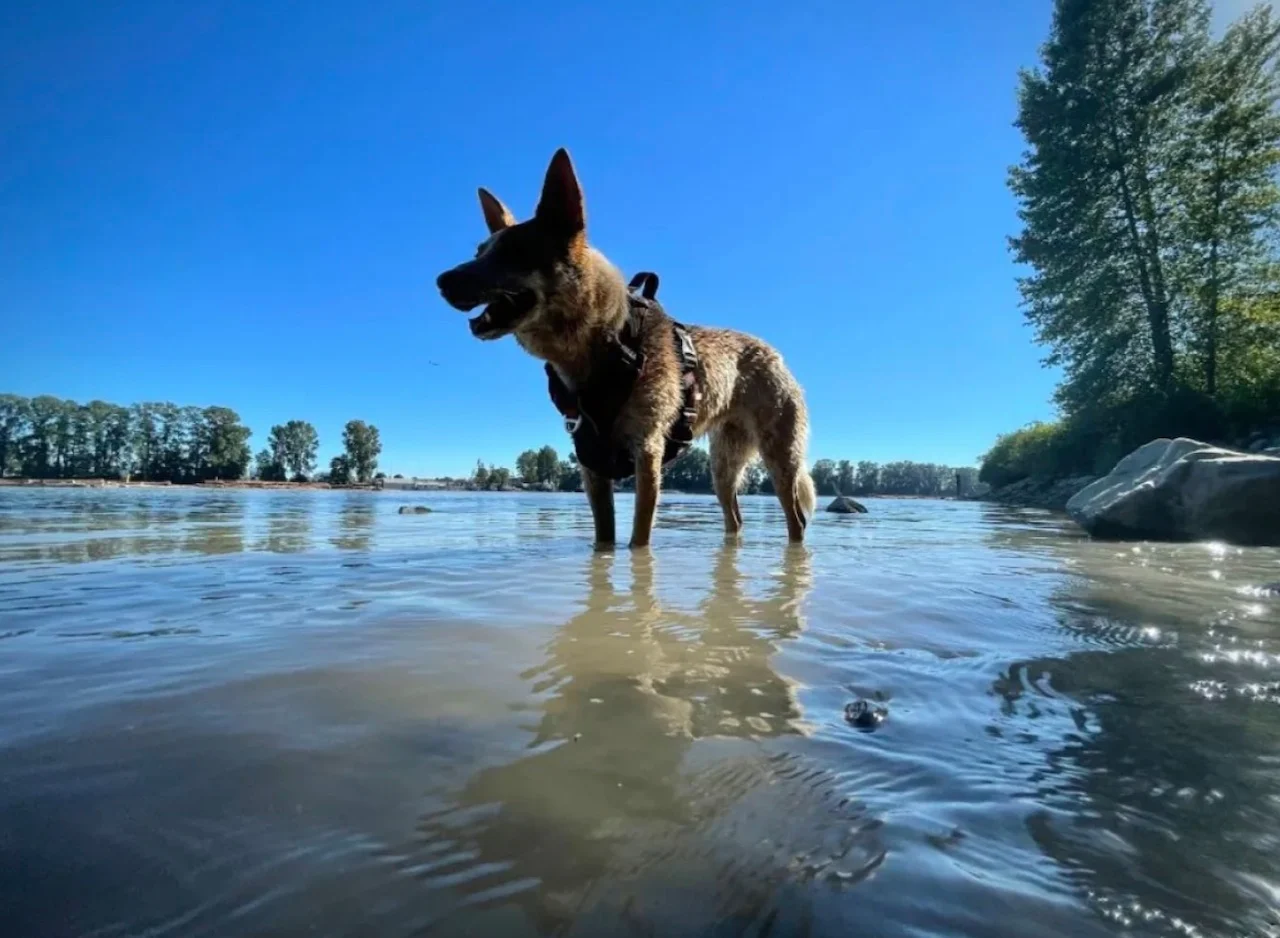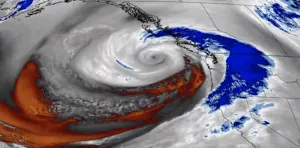
How to keep pets safe during the dog days of summer
The heat wave making its way through Western Canada this week is uncomfortable for people, but pets are also struggling to make it through these hot, sunny days.
Veterinarian Dr. Adrian Walton said that over the course of the pandemic many people decided to get a pet to keep them company. As a veterinarian and as a pet owner himself, he has some tips for both new and experienced pet owners for keeping their four-legged friends safe as temperatures soar.
KNOW THE SIGNS OF OVERHEATING
The first thing people tend to notice in pets on a hot day is excessive panting, but Walton said that's just the beginning of overheating.
"They actually cool down through panting and through their feet," Walton said.
If animals overheat more they could stop panting altogether.

A dog splashes around in the Fraser River on June 26, 2021. (Ben Nelms/CBC)
If their tongue is dry, and they aren't producing saliva, Walton said that's a sign they can't cool down.
Additionally, If your pet is unable to respond to something that would typically grab their attention, such as knocking on a window, that's a sign that they're in trouble.
ZERO TIME IN CARS
Recently, Walton has noticed an increase in people calling his clinic asking what they should do if they see a dog left in a hot car. His answer is to call the SPCA or RCMP right away.
"Time is essential in situations like this, because I've had situations where dogs have overheated in just a few minutes," he said.
Pets shouldn't be left in cars, even for a few seconds, Walton said. He recommends leaving pets at home or taking someone with you who can get out of the car with the dog to let it walk around and get fresh air.
ICE CUBES AND WATER BOTTLES
Some people freeze water dishes for pets to help them stay cool, but Walton said that because animals sometimes drink too much, it can create discomfort.
Instead, he suggests a few ice cubes in a bowl of water.
For people who don't have air-conditioning, they can take a couple of two-litre pop bottles, fill them with water and freeze them overnight. They can be put near a pet's bed with a towel over it to protect the animal from getting too cold.
This allows the animal to lean on the bottle when they need to cool down, and move away once they're feeling comfortable.
This is a trick Walton has used on his own Pomeranian.
"I actually found the two-litre bottles actually kept for most of the day, and were still actually cool when I came home at night."

Extreme heat can be dangerous for animals, so it's important to know how to help them cool off. (Ben Nelms/CBC)
WATER AND RUBBING ALCOHOL
Walton advises pet owners to carry water specifically for their pets when they take them out. A T-shirt or something else that owners can pour water on and can be draped over a pet's neck will also keep pets cool.
T-shirts and rags can also be put in the freezer to cool, and pets can wear them as a bandanna or vest until they cool down.
Walton recommends packing a small vial of rubbing alcohol when heading out for a walk.
"If your dog does get too hot, you can use that alcohol on their feet to help cool them down because it evaporates much more efficiently than water, and it's really good for cooling them down."
STAY OUT OF THE HEAT OF THE DAY
Asphalt heats up in the sun, which can actually burn dogs' paws, Walton said.
He recommends taking them out in the early morning, or late afternoon, to reduce the chance of damaging your furry friend's feet and prevent heat stroke.
Walson also reminds pet owners that humans have evolved to be long distance runners, whereas dogs are meant to exert short bursts of energy.
He said it's important to be aware of the type of exercise you're giving your pet and not overwork them.
The story was written by Courtney Dickson, with files from BC Today, originally published on CBC News.ca.









